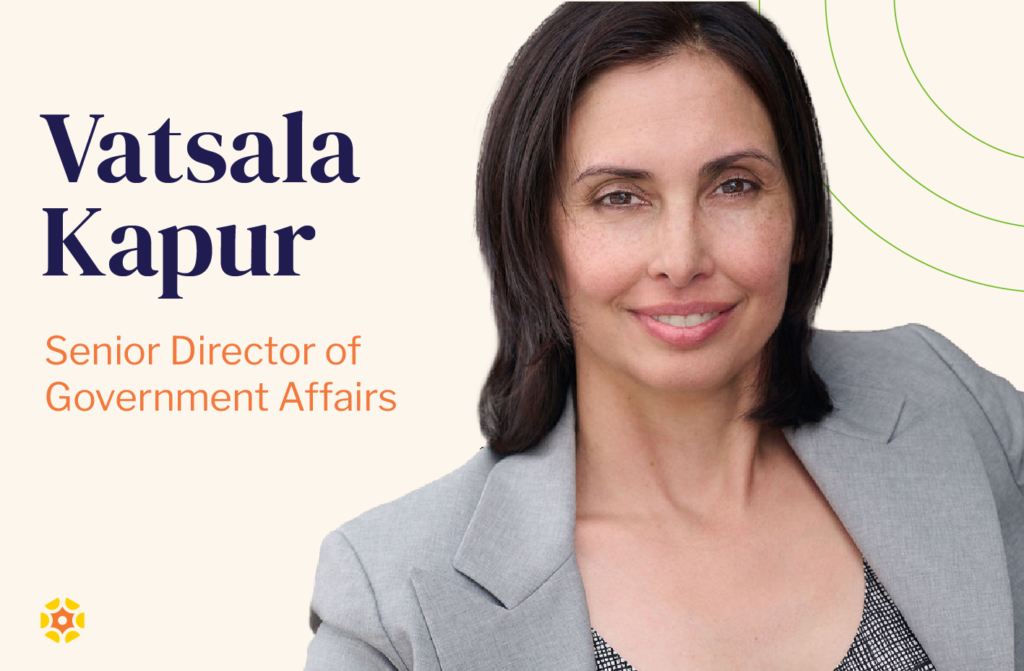Vatsala Kapur is the senior director of government affairs at Bamboo Health. For the first installment of our ACO REACH Q&A series, we’re discussing how accountable care organizations (ACOs) can thrive under ACO REACH, the new Centers for Medicare & Medicaid Services (CMS) model aiming to improve health equity, stakeholder feedback, and participant experience.
What makes you the most passionate about your role at Bamboo?
The thing that makes me most passionate is the opportunity to leverage technology and data to make more pinpointed and impactful changes to health outcomes. General health policy levers tend to be blunt instruments, but data and technology can help refine policy in a way that can really save lives. That’s why I wake up every day and do what I do.
The promotion of health equity is a pivotal component of accountable care organizations and particularly for the new ACO REACH model. How does the new model prioritize health equity to ensure underserved populations are getting the care they need?
The model explicitly calls out health equity as a priority, which may not sound like a big deal, but it is. It’s really important from a signal perspective to the market about that mattering, and the fact that they’ve built in benchmarks and looked at risk scoring to really think about health equity from a quantitative perspective. It is a step in the right direction. All of this will lead to behavior change by model participants and make health equity more a part of the DNA of how the care gets delivered.
As the industry evolves, the focus is shifting towards value-based care. What should ACOs look for in organizations they partner with when trying to succeed in VBC models like ACO REACH?
They should look for organization that is committed to a holistic responsibility for their patient population. Ultimately, the ACOs that are going to truly succeed in improving health outcomes have that mindset but are also thinking about improvements in quality of care and are innovative in how they think about reaching people in their patient population that they’re at risk for. Outside of just the traditional medical model, they’re thinking about those individuals and their needs in a more holistic way.
For instance, if an ACO is thinking about the barriers around transportation, they’re probably going to be much more successful in helping those individuals make their appointments on time. That is a small granular example, but ACOs should think creatively and innovatively about all the barriers to care and how to meet their needs so that they can make money and effectively address their patients’ significant needs.
How can ACOs leverage real-time data to help them succeed under the new model?
I think the CMMI (The Center for Medicare & Medicaid Innovation) has an opportunity to take a much more coordinated approach across all the model participants as it relates to their data strategy, and I really hope that CMMI considers that and doesn’t just let each model participants figure it out for themselves. I hope that there is adequate training and technical assistance, and that there is recognition on the part of CMMI that the ACOs already have data infrastructure that is hopefully helping to drive Real-Time Care Intelligence™.
I do think that the use of real-time data on where patients are and getting that to the right person at the right time is critical in improving care outcomes. I think that anyone who’s touched the healthcare system knows – which is pretty much all of us at some point in time – that isn’t happening in a systematic way.
Do you have any words of advice for ACO REACH participants as the performance period date approaches?
Talk to each other. Learn from each other. The opportunity to learn and cross fertilize is really important, and it should be something that happens organically, not something that’s being foisted on them by CMMI because they happen to be a participant in the model.
One of the big puzzles of modern health care delivery and medicine is the way care is delivered is so hyper specialized, and that creates real problems from a coordination perspective. The concept of care managers and coordinators are supposed to be that bridge.
I really think it’s incumbent on the healthcare community as a whole to come together and think more systematically about the intersections between their different practice areas to really make a change. If I had a magic wand, that’s what I would wave it for.
To learn more about the history and future vision of the model, read our ACO REACH Intelligence Brief.



